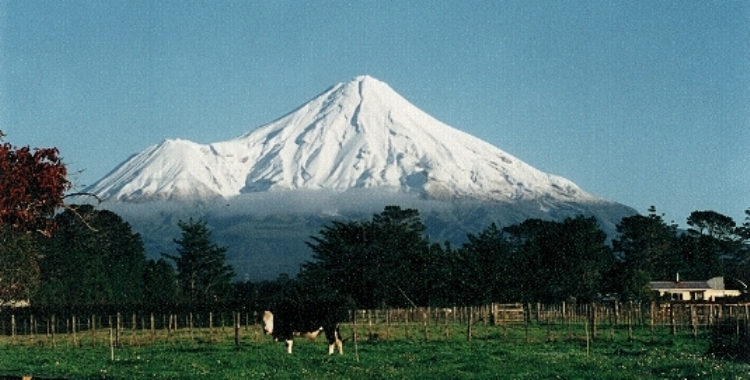Taranaki Maunga Redress Bill Passes, Recognizing Iwi Grievances and Restoring Ancestral Ties
“This Bill addresses the historical grievances endured by the eight iwi of Taranaki and acknowledges their enduring relationship with their sacred mountains,” Minister Goldsmith stated.

- Country:
- New Zealand
After nearly a decade of negotiations, the Crown and the eight iwi of Taranaki have reached a historic milestone with the passing of Te Pire Whakatupua mō Te Kāhui Tupua—the Taranaki Maunga Collective Redress Bill—at its third reading in Parliament. Treaty Negotiations Minister Paul Goldsmith announced the passage of the bill, marking a significant step toward redressing historical injustices and restoring the cultural and spiritual connection of Ngā Iwi o Taranaki to their ancestral mountain.
“This Bill addresses the historical grievances endured by the eight iwi of Taranaki and acknowledges their enduring relationship with their sacred mountains,” Minister Goldsmith stated.
Key Provisions of the Bill
The Bill introduces a range of measures to recognize and uphold the cultural and legal status of Taranaki Maunga (Mount Taranaki) and its surrounding landscapes. The key components of the agreement include:
-
Renaming of the National Park: Egmont National Park will be renamed Te Papa-Kura-o-Taranaki, reflecting its significance to Ngā Iwi o Taranaki.
-
Restoring the Name of the Highest Peak: The mountain’s highest peak will now officially be called Taranaki Maunga, replacing previous colonial-era naming conventions.
-
Recognition of Taranaki Maunga as a Legal Person: Inspired by similar legislation for Te Urewera and the Whanganui River, the Bill establishes Taranaki Maunga as a legal entity with rights and responsibilities, ensuring decisions about the mountain’s future are guided by cultural and environmental values.
-
Repeal of the Mount Egmont Vesting Act 1978: This legislation, which allowed Crown ownership of the mountain, will be repealed, signifying a fundamental shift in governance and acknowledgment of Māori ownership.
-
Vesting of National Park Land in Te Kāhui Tupua: The land will be vested in Te Kāhui Tupua, the collective entity representing the eight iwi of Taranaki.
-
Establishment of a Governance Body: A statutory body will be created to serve as the human face and voice of Taranaki Maunga, ensuring that decisions align with the values and principles of Ngā Iwi o Taranaki.
Protecting Public Access and Future Generations
Minister Goldsmith emphasized that while the Bill restores cultural ownership and recognizes past injustices, it firmly protects the right of all New Zealanders to continue enjoying Taranaki Maunga and its surroundings.
“A firm condition for the Crown is that all New Zealanders will continue to have access to this magnificent place for generations to come. It has been agreed that access to the mountain will not change,” he reassured.
Acknowledging the Past, Looking to the Future
The passing of the Bill represents a significant moment of reconciliation, with the Crown formally acknowledging the hardship and trauma caused to the iwi and hapū of Taranaki due to land confiscations, colonial injustices, and the disregard for their spiritual connection to the mountain.
“The Crown formally and publicly recognises the hardship and heartache it has caused whānau and hapū and acknowledges the resilience of Ngā Iwi o Taranaki in the face of such adversity,” Goldsmith stated. “We must acknowledge the hurt caused by past wrongs so that we can move forward, supporting iwi in achieving their aspirations and opportunities.”
A Long Journey to Justice
The road to this historic agreement began in 2016, when Ngā Iwi o Taranaki signed the Terms of Negotiation with the Crown. Years of discussions, advocacy, and legal processes have culminated in this momentous occasion, paving the way for a more equitable and respectful future between the Crown and Māori.
As the Bill becomes law, it symbolizes not just redress for past wrongs, but a new era of partnership and mutual respect. For Ngā Iwi o Taranaki, the recognition of Taranaki Maunga as a living, legal entity ensures that their sacred ancestral landmark is honored, protected, and governed in a way that aligns with both Māori values and the interests of all New Zealanders.










